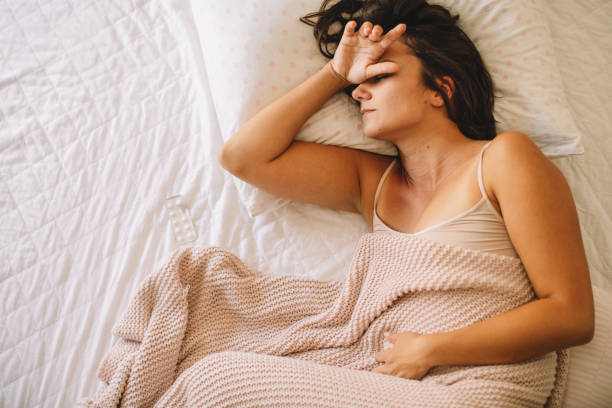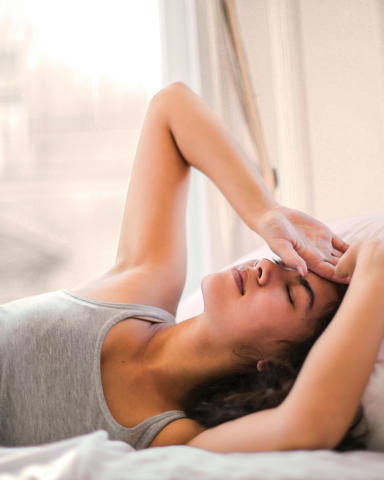Introduction
CBD (cannabidiol) has become a topic of growing interest due to its many beneficial health properties. In this article, we will explore in detail the origins of CBD, its differences from THC, as well as its benefits for the body.
What is CBD?
CBD is a compound naturally present in the cannabis plant. CBD is typically extracted from hemp, a variety of cannabis containing low levels of THC. Unlike THC (tetrahydrocannabinol), another cannabis compound, CBD does not have psychoactive and psychotropic effects. It does not cause euphoria or altered perception, so rest assured, there is no risk of getting “high”.
Definition of CBD
CBD, or cannabidiol, is one of the many cannabinoids found in cannabis. It acts on the body's endocannabinoid system (ECS), a system found throughout the body and responsible for regulating various physiological processes, such as pain, inflammation, mood, sleep and appetite.
Origin of CBD
CBD, or cannabidiol, was first discovered in 1940 by chemist Roger Adams. However, it was not until 1963 that its chemical structure was fully elucidated by scientists Raphael Mechoulam and Yechiel Gaoni. This pioneering research made it possible to understand the composition and properties of CBD.
Differences between CBD and THC
Although CBD and THC are both cannabinoids, they have different effects on the body. THC is responsible for the psychoactive effects associated with cannabis use, while CBD has no psychoactive effects. Because of this difference, CBD has become a popular option for those looking to benefit from the medicinal properties of cannabis without the euphoric effects of THC.
|
CBD |
THC |
|
|
Origin |
Extract from the Cannabis Sativa plant |
Extract from the Cannabis Sativa plant |
|
Psychoactive effects |
Non-psychoactive, does not produce euphoria or altered mental state |
Psychoactive, can produce a feeling of euphoria and alter mental state |
|
Legality |
Legal in many countries, as long as the THC level is below a certain threshold (0.3% in France) |
Subject to stricter legal restrictions, illegal in many countries |
|
Medical use |
Potentially beneficial for relieving pain, anxiety, inflammation, sleep disorders, etc. |
Used medically to relieve pain, nausea, muscle spasms, stimulate appetite, etc. |
|
Side effects |
May cause dry mouth, drowsiness, slight drop in blood pressure |
May cause tachycardia, memory problems, confusion, psychotic effects |
|
Screening tests |
Can be detected in cannabis drug tests, but generally not a reason for drug test failure |
Can be detected in cannabis drug tests and may result in drug test failure |
Properties and Benefits of CBD
CBD exhibits a range of health-promoting properties, making it a topic of interest to many people. Here are some of the main benefits of CBD:
Relaxing and anti-stress effects
CBD can help reduce anxiety and stress by acting on the receptors of the endocannabinoid system present in the brain. It can promote a feeling of calm and relaxation without causing drowsiness.
Reduction of anxiety
Many studies have shown that CBD can help reduce symptoms of anxiety and stress-related disorders, such as panic attacks and post-traumatic stress disorder (PTSD). It can also improve mood and promote a feeling of general well-being.
Improved sleep
Some people use CBD to improve sleep quality, including reducing insomnia and promoting deeper, more restful sleep. CBD can help relax the body and mind, encouraging you to fall asleep faster. Consumed daily or as a treatment, it provides a fundamental action on the circadian rhythm, the human body clock and allows better regulation of your quality of wakefulness and sleep.
Relief of pain and inflammation
CBD has analgesic and anti-inflammatory properties, making it a natural option for relieving chronic pain, muscle and joint pain, and inflammation associated with various conditions.
Other potential benefits
Preliminary studies suggest that CBD may also have beneficial effects in other areas, such as reducing withdrawal symptoms, and even improving skin balance for conditions such as psoriasis. However, ongoing research will confirm and clarify its action.
Precautions and interaction with certain medications
Our CBD extract is THC-free, so you can consume it with complete peace of mind without fearing a positive return in a cannabis anti-doping test or during a police check on the road.
Interaction with certain drugs
CBD may interact with certain medications. It is advisable to consult a healthcare professional in case of doubt or serious illness, particularly if you are taking other medications, to avoid potential interactions.
How to properly dose CBD?
It is essential to find the right dose of CBD to benefit from its effects without experiencing unwanted effects. Here are some tips for properly dosing CBD:
Determine the appropriate dose
It is recommended to start with a low dose of CBD and gradually increase until you find the dose that suits your needs. Everyone reacts differently to CBD, so it's important to personalize the dose based on your symptoms and how you feel.
Start with low doses and increase gradually
To minimize potential side effects, it is best to start with low doses of CBD and then gradually increase if necessary. This allows your body to gradually adapt to the CBD and determine the optimal dose.
Consult a healthcare professional if necessary
If you have specific concerns or are taking other medications, it is advisable to consult a healthcare professional before starting to use CBD. He will be able to provide you with personalized advice based on your medical situation.
Tips for effective use of CBD
To get the most out of your CBD use, here are some tips to follow:
Choose quality products
It is important to choose high-quality CBD products that are from trusted sources and have undergone independent laboratory testing to ensure their safety and quality.
Consume CBD regularly
To achieve optimal results, it is recommended to consume CBD regularly and consistently. Daily use can help maintain consistent levels of CBD in the body and provide sustained stimulation of ECS receptors, which may promote long-term beneficial effects.
Observe the effects on your body and adjust if necessary
Every person reacts differently to CBD, so it is important to carefully observe the effects on your body. If necessary, adjust the dose, route of administration or method of use to optimize results.
Keep a journal of your experiences with CBD
Keeping a journal of your experiences with CBD can help you adjust the dose that's right for you based on how you feel. This can help you better understand how CBD affects you and adjust your use accordingly.
CBD and Health: Areas of application
CBD for pain relief
CBD is increasingly used to relieve chronic pain, migraines and headaches, as well as muscle and joint pain.
Chronic pain
Some studies have suggested that CBD may be effective in relieving chronic pain, such as that associated with osteoarthritis, fibromyalgia, and other inflammatory conditions.
Migraines and headaches
Preliminary research suggests that CBD may help alleviate the symptoms of migraines and headaches, by reducing inflammation and acting on pain receptors.
Muscle and joint pain
CBD may also be beneficial for relieving muscle and joint pain, including those caused by inflammation, injuries such as blows, sprains, aches, or conditions such as arthritis.
CBD for stress and anxiety management
CBD is increasingly used to help reduce anxiety, stress and panic attacks.
Reduction of anxiety and panic attacks
Studies have shown that CBD may have relaxing effects, meaning it can reduce feelings of anxiety and help prevent panic attacks.
Managing daily stress
CBD can be used to help manage daily stress and promote a feeling of calm and relaxation. It can act on receptors of the endocannabinoid system involved in the regulation of mood and stress.
Improved mood
Some CBD users report an improvement in their overall mood after using CBD regularly. This can be attributed to its relaxing effects.
CBD for Sleep
CBD may also play a role in improving sleep by promoting relaxation and reducing anxiety.
Insomnia and sleep disorders
Studies have suggested that CBD may help regulate sleep by promoting falling asleep and improving sleep quality. It may also be beneficial for people suffering from insomnia or other sleep disorders.
Regulation of the sleep-wake cycle
CBD may have an effect on the regulation of the sleep-wake cycle, promoting a more regular sleep pattern and better synchronization with the body's natural cycles.
Withdrawal symptoms (tobacco, drugs, alcohol)
Some research suggests that CBD may help reduce withdrawal symptoms related to tobacco, drug, or alcohol addiction. It may play a role in managing withdrawal symptoms such as anxiety, sleep disturbances, and cravings.
Skin care (acne, psoriasis)
CBD is also of interest for skin care, due to its anti-inflammatory and soothing properties. It can be used to fade scars, inflammation from acne, psoriasis and other skin conditions.
Legality and safety of CBD
The legality of CBD can vary from country to country. It is important to comply with local laws and check current regulations before using or consuming CBD.
Concerning France, CBD is legal provided that it is extracted from authorized hemp varieties and that its THC content is less than 0.3%. The only route of administration authorized to date is the cutaneous route.
Quality and Safety of CBD products
When choosing CBD products, it is essential to ensure their quality and safety.
Quality of CBD
It is recommended to choose CBD products from reputable sources that have undergone independent laboratory testing to ensure purity and compliance with safety standards.
Extraction and manufacturing methods
The extraction and manufacturing methods used to produce CBD products can impact their quality. Supercritical CO2 or ethanol extraction methods are generally considered the safest and most efficient.
Laboratory tests and certification
It is recommended to choose CBD products that have been laboratory tested and which are accompanied by certificates of analysis, confirming the concentration of the CBD as well as the absence of unwanted contaminants.
Conclusion
In conclusion, CBD offers a wide range of properties and potential health benefits. It can be used to relieve pain, reduce anxiety, improve sleep, and treat specific conditions. However, it is essential to choose quality products, dose CBD correctly and consult a healthcare professional if necessary. With these precautions, CBD can be an effective natural option for improving your overall well-being.
Keywords: CBD, Endocannabinoid, Properties of CBD, Use of CBD
FAQ
- What is CBD?
- Is CBD legal?
The legality of CBD varies from country to country. It is important to check local laws and regulations before purchasing or using CBD. In France, a CBD extract containing less than 0.3% THC is legal. The only compliant mode of administration of CBD to date is through the skin.
- What are the benefits of CBD?
CBD is being studied for its potential to relieve pain, reduce inflammation, alleviate anxiety and stress, improve sleep, and help manage certain symptoms related to specific conditions. Many studies are underway on this subject.
- What is the recommended dose of CBD? How do I choose the right CBD dosage for my needs? How to choose the right dosage of CBD?
The optimal dose of CBD is unique to each person. Indeed, physical characteristics differ depending on the individual (height, weight, metabolism, age, individual sensitivity, etc.). Variable characteristics that modify the body's behavior / reaction to CBD / ECS response to CBD. The self-experimentation phase will be the best ally to precisely determine the quantity of CBD suited to your needs. It is advisable to start with a low dose and gradually increase until you achieve the desired effects and determine your personal dosage. The two tips to remember: Take it step by step and listen to your body. Your compass is your feeling. Depending on the desired effect, adjust (increase or decrease) the dose based on how you feel. / The dose of CBD must be adapted and adjusted to the effects you wish to obtain. For example, the amount of CBD effective for relieving temporary stress will not be the same as for severe anxiety.
Moreover, it is fundamental to measure the effects of CBD over several days because for some people it takes 5 to 7 days minimum, the time necessary for the receptors to “wake up” and for the body to react. and rebalances.
- How long does it take for CBD to take effect?
It takes between 10 to 40 minutes, depending on the individual.
- Does CBD have side effects?
Overall, CBD is considered safe and well-tolerated by most people. However, possible side effects may include dry mouth, drowsiness, lower blood pressure, and interaction with certain medications. It is recommended to consult a healthcare professional before using CBD, especially if you are already taking medication.
- Is CBD harmful? Is there a risk of overdose?
In 2017, the WHO classified CBD as not harmful to health. A weighted dosage is recommended within the limit of 160 mg/day. The risk of overdose is estimated at around 1500 mg, an extremely high proportion.
No endocannabinoid receptors in breathing so no danger of overdose.
- Should the dosage be increased during prolonged use?
CBD, unlike THC, does not develop an addictive nature. It does not contain any psychotropic substance naturally, or in such a low proportion in certain extracts (less than 0.3%) that it makes euphoria non-existent. Our CBD extract is THC-free.
The CBD molecule acts differently on the receptors of the endocannabinoid system and does not affect the reward system, a key condition for addiction. There is no need for a higher dose and therefore no risk of dependence.
- Can CBD be addictive?
CBD is not considered an addictive substance and does not generally cause dependence by the WHO. Unlike THC, CBD does not have psychotropic effects and does not cause euphoria or intoxication.
- Is CBD compatible with medical treatment?
It is always preferable to seek the advice of a health professional before using or consuming CBD in the event of a serious illness because it can interact with certain treatments.






